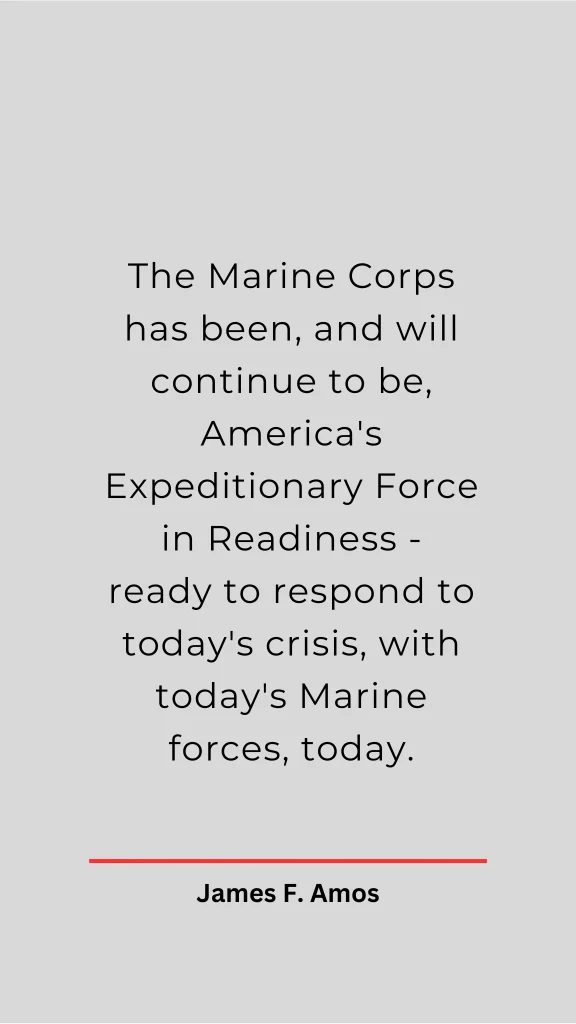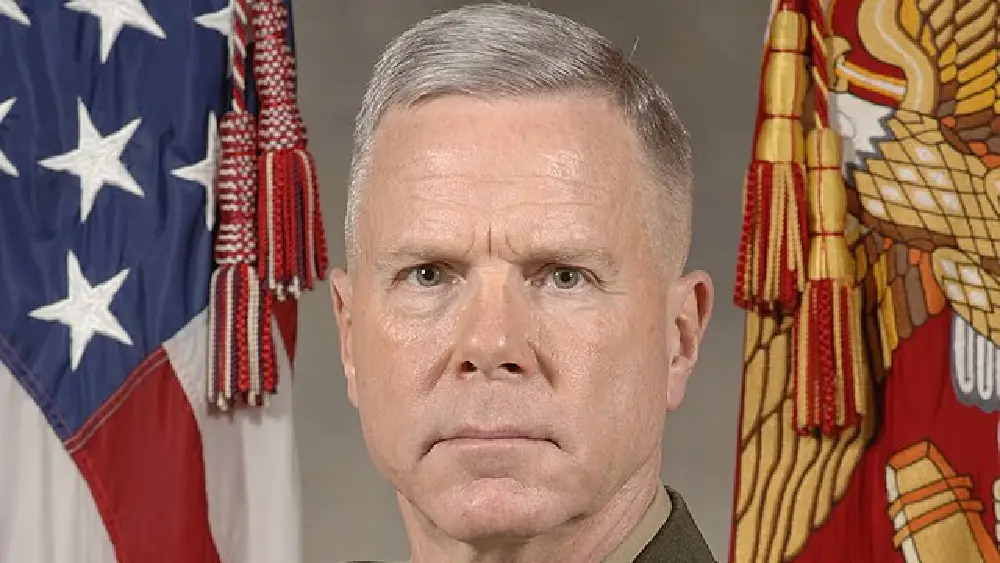James F. Amos, also known as “Jim”, born on November 12, 1946, in Wendell, Idaho, is a name synonymous with leadership, excellence, and an unwavering commitment to the United States Marine Corps. A retired four-star general, General Amos made history as the 35th Commandant of the U.S. Marine Corps and the first aviator to hold this prestigious position. His storied career reflects his dedication to service, his strategic acumen, and his pioneering contributions to the U.S. Marine Corps.
Early Life and Educational Foundation
Growing up as the son of a career Navy pilot, General James Amos was deeply influenced by the values of discipline, service, and patriotism. These early experiences shaped his path toward a distinguished military career. General Amos graduated from the University of Idaho in 1970, earning a Bachelor of Science degree in finance and economics. He was commissioned as an ensign in the United States Navy through the Naval Reserve Officers Training Corps on January 23, 1970.
General Amos’s journey to becoming a U.S. Marine Corps legend began in Pensacola, Florida, where he underwent pilot training. His determination and skill earned him the coveted designation of Naval Aviator on November 23, 1971. After being promoted to Lieutenant Junior Grade in December 1971, Amos transitioned from the Navy to the U.S. Marine Corps in 1972, setting the stage for a remarkable career.
Pioneering Leadership in the U.S. Marine Corps
Service as a Naval Aviator
As a U.S. Marine Corps aviator, General Amos excelled in various roles, commanding respect for his operational expertise and leadership skills. He rose through the ranks, commanding squadrons and major units. General James Amos demonstrated strategic acumen and dedication to mission success as the commanding officer of the 3rd Marine Aircraft Wing. He led the wing during critical operations in the Iraq War in 2003 and 2006. His leadership showcased his ability to navigate complex combat environments with skill and effectiveness.
James F. Amos: The Assistant Commandant of the U.S. Marine Corps
In 2008, General Amos was appointed the 31st Assistant Commandant of the U.S. Marine Corps, serving as the principal deputy to the Commandant. During this period, he focused on key initiatives to enhance the readiness, training, and modernization of the U.S. Marine Corps. His work laid the groundwork for many of the Corps’ strategic advancements.

35th Commandant of the U.S. Marine Corps
In 2010, General James Amos made history as the 35th Commandant of the U.S. Marine Corps, becoming the first aviator to hold this esteemed position. He focused on improving the well-being of U.S. Marines and their families throughout his tenure. General Amos championed initiatives that enhanced quality of life, mental health support, and professional development. Under his leadership, the U.S. Marine Corps navigated significant challenges, including budget constraints and the evolving nature of warfare.
General Amos was instrumental in advancing the Corps’ capabilities, particularly in aviation, logistics, and expeditionary operations. During his tenure, he actively prioritized innovation, fostered collaboration, and upheld the U.S. Marine Corps’ reputation as an elite fighting force.
Contributions and Legacy
General Amos’s leadership extended beyond the battlefield. He played a pivotal role in shaping U.S. Marine Corps policies and ensuring the force’s preparedness for 21st-century challenges. His initiatives focused on integrating advanced technologies, fostering resilience among U.S. Marines, and maintaining the Corps’ storied traditions. His ability to balance innovation with tradition earned him respect across all ranks and branches of the armed forces.
Upon retiring in December 2014, General Amos left behind a legacy of transformation and excellence. His career serves as a testament to the enduring spirit of the U.S. Marine Corps. It highlights the vital role of leadership in achieving mission success.
Inspiring Future Generations
General James F. Amos’s journey from a young man in Idaho to the highest echelons of the U.S. Marine Corps is an inspiring story of dedication and hard work. His achievements highlight that leadership is not about personal accolades but about serving others. General Amos’s legacy reminds us of the importance of upholding the values that define an institution.
Furthermore, as the U.S. Marine Corps continues to evolve, the legacy of leaders like General James F. Amos serves as a guiding light. His story inspires future generations to embody the principles of honour, courage, and commitment. It stands as a powerful reminder of what it means to serve with distinction and leave a lasting impact on one of the nation’s most revered institutions.
Conclusion
General James F. Amos’ remarkable career is a testament to the enduring spirit of the United States Marine Corps. His vision, leadership, and dedication to duty have left a permanent mark on the Corps’ history, ensuring its readiness for future challenges. General Amos exemplified the highest standards of military service, whether as a naval aviator, a commander in combat, or the Commandant of the U.S. Marine Corps. He embodied the ethos of the U.S. Marine Corps: honour, courage, and commitment.












Comments are closed.